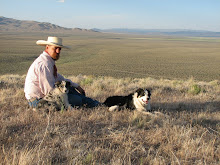Holism is what I am but what are you?
Holism or Reductionism? And the history behind Holism vs Reductionism. Which one are you? You decide for yourself.
Since I became a v/blogger I've noticed how oddly people would stare at me for my opinions and views as if I was some kind of oddball that did not suit ASL powerhouse or deaf powerhouse society. What were you thinking? They asked. Are you trying to drag us down or are you trying to tell us something? After seeing this again and again I made a decision to share the real me and the theory behind much of my v/blogs and point of views.
Holism is exactly what I am even though I'm still a student of Holism theory. Even after fifteen years of learning and practicing it I am still learning but I find myself teaching it more than ever before. It must have something to do with confidence, knowing I'm able to defend the term, Holism now than ever before. Regardless, Holism has proven to be very fruitful and effective for me including but not limited to how I manage and operate my business, investment strategies, family affairs, community and such.
In order to understand Holism it's necessary to compare wholeness with reductionism, that of parts and specialties. Over 2,300 years ago Aristotles said, "The whole is more than the sums of its parts". It was when he discovered holism theory but the term "Holism" was not born until 1926 when Jan Smuts gave the theory a name. He went on to publish a book called "Holism and Evolution". In 1983, Culcom, a research team from a University in England discovered that the modern studies (Universities and such) have moved too far in the direction of specialization. Henrik Sinding-Larsen of Culcom Research said, "Holism has been abandoned in studies of modern society".
The opposite of Holism is known as Reductionism. Reductionism is what we frequently witness coming from specialists such as professors, educators and such. They find Holism too difficult to comprehend and digest because they were trained in the studies of modern society, that of reductionism.
I know for a fact that Holism is what I am but what are you? It's a worthy question to ask in order to help us understand each other.
